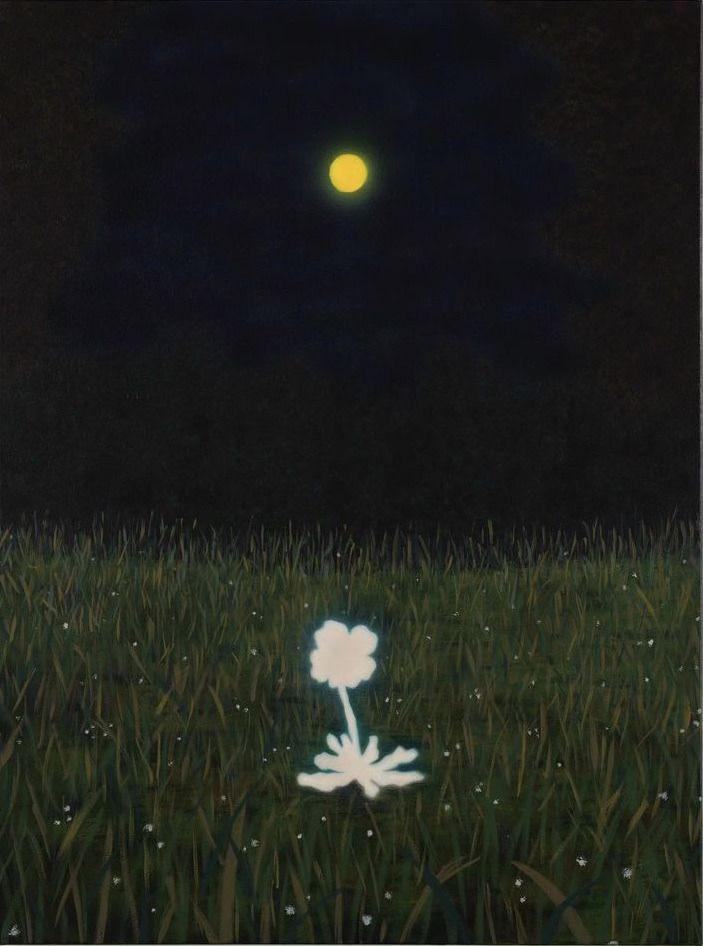un-gutted
loose ends of finding knowing outside oneself, Rotting in the Sun (dir. Sebastián Silva, 2023), embracing mystery
One of my least favorite things about myself is that most nights, I fall asleep listening to an audiobook or an educational podcast.
What sharpens the point of my disdain for this reality is that I can identify the moment I chose this. It was about four years ago, I was in bed with my already-slumbering partner, and it’s not that I was insomniac, just bored. I decided that, to make the moment more interesting, I required strangers’ voices murmuring in my skull.
I was a person falling asleep cocooned within the ambient din of my environment, like probably every person who has ever slept in the past. And I’m sure I would have dozed off within the next two minutes anyway.
Why did I think a situation that calls for less input deserved more? That the instant before the first spoonful of the murky soup of delicious dreams deserved to be eclipsed by, essentially, droning radio static?
I can now solidly say that it was, is, always has been, the insatiable urge for self-improvement. [Actually, cloaked self-effacement.1]
I was already applying my waking hours of cooking, eating, cleaning, walking, to this pursuit through audio media. If I could similarly use time that would be wasted on the precipice of slumber to learn something new or better myself, why would I fritter it away?
Though I write with a tone of irony, I feel an indignant force within me protesting, Why would you waste it? Don’t waste it!
Lately, I’ve been contemplating the idea that knowing only emerges from outside sources; my instinct has been that any time spent alone with my thoughts or in my own space begets further ignorance, not wisdom.
Of course, other people know more, know themselves better, know what’s worth sharing, expressing, feeling. Even texts about how this is not true, how my inner world has value and how capitalistic forces constantly seek to commodify internal experiences2, seem to inevitably eclipse the value of my own inner realm.
My only task has been to sort through the many offerings of others and to ascertain those which might apply to me (Help me? Allay my uncertainty of self? Make me forget I am a person of my own?).
I am — perhaps we all are — constantly beset with input about “how to x” or “what to do” or “what I did” or “what I love” or some other iteration of “me and my life.”
Recipes, outfit pictures, art someone made, art someone enjoys, a book someone is reading, a question someone has… grist for the mill of personal social media.
Underneath, the river current of a message runs: this is worthwhile.
And I understand that what a person finds worthwhile also likely says something about who they are.
It’s difficult to detach from such shares because, I am now recognizing, I don’t take them lightly. It’s hard for me to think, I don’t like that or That doesn’t work for me because by acknowledging this, I am acknowledging a rejection of not just something but part of someone.
Within the realm of politically-aligned or aesthetically-aligned reason, I’d rather accept a great amount of input than winnow it down because who am I to reduce the world to only a piece of what exists? [I already do this, being a certain person in a place and a time does this, I am not omnipotent. I must accept this.]
And how could I possibly know what piece is worthwhile when, by nature of being shared, everything out there is worthwhile to someone? [There are many worthwhile things I may never encounter due to the limited nature of being a body-contained conscience. It is up to me to determine what is worthwhile to me because I am not everyone.]
Last week for our movie night, my partner chose this very wild Sebastián Silva film, Rotting in the Sun (2023).3 One of the characters, Jordan Firstman (playing himself), pitches a show to Silva (also as himself) on a gay nudist beach in Oaxaca, after they both nearly drown.
“It’s me. You know? But it’s also like, all these crazy fucking f***** that I’ve met, and, like, sometimes celebrities, but sometimes not, and it’s my followers. It’s like my Instagram followers, too. They’re like part of the show. You follow me on Instagram, right? … You’re gonna need to follow me on Instagram to, like, fully understand the scope of the show. … And like, everyone’s the host, which is cool. Like no one’s ever done that before. It’s called You are Me.”
Is it even possible for everyone to be the host in this one contained space — on Instagram, sure, but in the show, life, our minds? And as Firstman proposes, can we be become each other? The fusion of subject and object, audience and presenter, self and other?
Rather than a complete melding, I envision this process as a kind of hollowing, scraping out one’s undecipherable viscous innards to reveal a smooth, yet quietly trembling dish to hold the neat package of the “other.”
Firstman expects this self-forgetting from Silva, wholly bypassing the traumatic experience of drowning when Silva expresses his disorientation.
“Um, I don’t know man, it’s like, I can’t really hear your movie pitch right now so focused, because I almost fucking drowned, and, like, I’m still shaky, and like, sorry my head hurts,” Silva explains.
Firstman interjects, clasping Silva’s back and chest, “I’m sorry, I’m sorry, I’ve like never met someone so obsessed with drowning. Like, you didn’t drown, right? Did you drown?”
“No, I didn’t.”
“Are you alive?”
“Mm-hmm.”
“Are you alive?” Firstman shakes Silva.
“Yes, I am.”
“Yeah. Then shut the fuck up.” The shaking continues.
“OK.”
“And write a show with me!”
Firstman expects his counterpart to exist as one with him in this moment. Nearly drowning didn’t faze Firstman, so why should it bother Silva? The underlying message is clear: You are me.
I’ve realized I was mistaken when I wrote that my need for constant media input derives from a desire for “self-improvement.”
It’s self-effacement, wanting to not be a body, wanting to fill in the gaps of life’s mysteries and inherent un-knowing with everything that could possibly be known. It’s western culture — the whole concept of “improvement,” “more” and having and consuming and seeking data always.
Are we not all having the same experiences online? Every day? All the time? Should we not all know the same things? Have the same things? Be the same?
That’s miserable.
Capitalism and fascism hate difference or co-opt it to sell us something or to capture us in some way. And control requires both physical and psychological means. The variations in our internal landscapes make it harder to control (or “influence”) us psychologically. With all of our difference we contain myriad latent ways to resist these systems. With all of our mystery, we resist capture.
I think I’m a different person and I know different things. My skin holds me in.
I must be more vigilant. I must protect the mystery.4
I think I might scoop my innards back in and sew myself shut.5

Brackets contains thoughts following my initial writing, still before publishing, but after some remove from the initial statement.
I’ve been listening to The Sirens’ Call by Chris Hayes and The Age of Surveillance Capitalism by Shoshana Zuboff on and off, and dabbling in the lectures or writings of Thich Nhat Hahn, Eckhart Tolle, and Byung-chul Han.
via Mubi. It was shocking and horrific and I loved it. Chibi deserves better!
Thinking of Byung-chul Han’s conversation, “Capitalism Dislikes Silence” with Thomas Ostermeier and Florian Borchmeyer, in Capitalism and the death drive.
My self-contained playlist from 2021.


